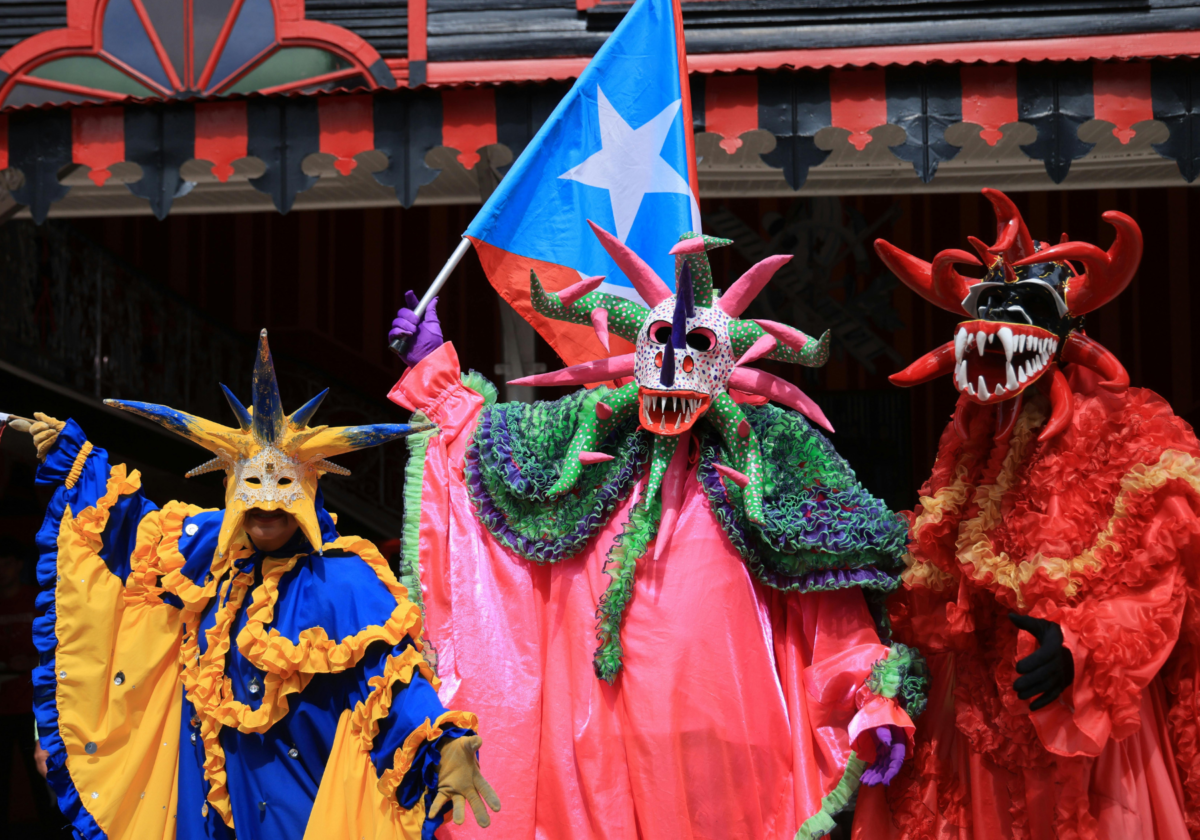I post this because just yesterday, as my bus took its path through Spanish Harlem’s 3rd Avenue, I thought how badly this neighborhood needed a bookstore… One that catered to our Puerto Rican, Mexican and African- American mosaic.
Fruitvale Gets New Bookstore, New Sense of Self
By Duane Moles, October 2, 2006 09:50 AM
OAKLAND — On a Friday afternoon, the sugary smell of baked treats waft down Fruitvale Avenue. The smell entices a steady flow of customers up the block from Oakland’s International Boulevard to a Mexican bakery. A women leaving the bakery pauses, then notices something new next door: a bookstore.
Sure, there are a few other places you can buy a book in the Fruitvale: one store has a rack of pulp Westerns, and a church has storefront where you can find Bibles and religious texts. But if you want to purchase a novel by Gabriel Garcia Marquez, a home improvement manual, or even “Chicken Soup for the Soul,” then Libreria Coyoacan is the only shop in the neighborhood. Some 13 bookcases may seem like a small selection, but the array of books, all but a handful in Spanish, is a milestone in the revival of the Fruitvale.
Libreria Coyoacan’s owner, 32-year old Ivan Hurtado, arrived in the United States three years ago. Weary of the crime in his home city, he left a steady job as a broker and investment advisor working at Mexico City’s foreign exchange to reunite with his parents who had come to the States more than a decade ago.
Despite his experience and international business degree from a top Mexican university, Hurtado could only find work in dead-end jobs—construction worker, electrician, dental assistant. “It was depressing,” said Hurtado.
When Hurtado decided to open his bookstore earlier this year, he saw it as more than just a chance for him to own a business. He felt it would also help his neighbors. “A community that reads, a community learns more, they have better opportunities to live a better life, get a better job—not just in construction,” said Hurtado.
Fruitvale resident and regular customer Graciela Seeley agreed.
“A bookstore is necessary for every neighborhood, and this one didn’t have one,” she said.
Lara Walker, a 19-year-old who lives east of the neighborhood, was surprised when she found Coyoacan. Walker typically reads in English, but she says Hurtado’s store will make it easier for her to reconnect with her Hispanic heritage. The bookstores where she usually shops basically don’t carry books in Spanish. “They only have like 5 or 6 books in Spanish literature,” she said. “They don’t have much to offer.”
Over the last 15 years, the Fruitvale has had a slow rebirth. Tax revenues are up and retail vacancies are down. But the shopping corridor along International Boulevard remains saturated with a narrow spectrum of businesses: discount shops, Mexican restaurants, beauty salons, and sneaker shops. Payless Shoes has stores on consecutive blocks along International Boulevard.
The opening of Libreria Coyoacan came as a surprise to many in the neighborhood. Jenny Kassan ran the Unity Council’s Main Street program, which spruced up the area by cleaning the streets, helping business owners paint their storefronts, and even painting the trashcans in bright Mexican motifs. For years, she and others at the Unity Council had tried to lure a bookstore into the Fruitvale. Stores either weren’t interested, or were unwilling to open in a small retail space.
“Suddenly this guy came along and opened a bookstore,” Kassan said.
Local independent businesses like Libreria Coyoacan “add to the community feel” of the Fruitvale according to Sergio Arroyo, a program coordinator with the Fruitvale’s Spanish Speaking Citizens Foundation. But Arroyo remains cautious. “The real challenge will be keeping the place open.”
Janet Lopez, manager of the local branch of the Oakland Public Library, also says the Coyoacan may have a tough time. “People here (in the Fruitvale) are still kind of in survival mode,” says Lopez. Her patrons come to the library for books on practical subjects: immigration assistance, ESL texts, resume writing, buying a house, family relations.
Independent bookstores around the country are struggling to stay afloat. Since the 1990s, the number of independent bookstores across the nation has been cut by more than half—from more than 4000 to about 1800—largely due to competition from mega-stores like Barnes and Noble and Borders, and the advent of Amazon.com. Bookstores face challenges different than other retailers. Their merchandise comes with a price already printed on it, and retailers don’t get a large discount from distributors. Many bookstores struggle to make the 2% profit that is the industry formula for staying afloat.
“You have to do it because you love what you do,” says Northern California Independent Booksellers Association head Hut Landon
Community involvement is critical to the success of any bookstore. Michael Tucker, owner of local bookstore chain Books Inc., says that if a bookstore is going to survive, “it needs to be interactive with the community,” either through ties to local schools, or through cultural events.
Until late July, Coyoacan was tucked into tiny storefront barely 15 feet wide. Six months earlier, Hurtado had purchased some 200 books that were stacked along the floor and took over the lease. He then started making what he calls “a real bookstore.”
For the first few months, the bright new lighting and shelves brought customers to Coyoacan, but the lack of floor space cramped Hurtado’s vision for his bookstore. By May, Hurtado had started negotiating a deal to swap places with a beauty salon a block south. The new store offered Hurtado the space to transform his shop.
Since reopening, Hurtado has brought in more Mexican handicrafts and paintings—all for sale. He added a couple of small tables and a pair of new computers with internet access in the back of the store. Beyond the physical changes, Hurtado has begun experimenting with free in-store events: book debates, movie nights, and children’s story time. An evening dedicated to Aztec culture has been the most successful so far. A dozen people spent the evening talking about the Aztec calendar and mathematics.
When Hurtado opened Libreria Coyoacan, he chose to name store after the neighborhood in Mexico City where he grew up. Once home to Frida Kahlo, Diego Rivera and Leon Trotsky, Coyoacan has remained a neighborhood where the arts and political action meet. Beyond the name, Liberia Coyoacan keeps Hurtado connected to his roots. When Hurtado has trouble tracking down a hard to find book, he sometimes calls old friends back in Mexico City.
“Of course I miss the food, the tradition, the parties, but I think that my mission at this time is here,” he says.





Hola somos la familia rivera y estamos buscando la nueva direccion de la libreria coyoacan hemos estado visitando el area de oacklan buscando informacion pero no hemos tenido suerte nosotros estubimos en al ibreria un par de veces y nos gustaria el seguir aprendiendo un poco mas por fabor si alguien tiene informacion enviar un correo a yeanylopez[at]gmail.com muchas gracias de antemano
gucci outlet north face canada by swarovski uggs outlet north face jackets raybans.com juicy couture outlet the nike air max coach factory outlet store swarovski uk polo ralph lauren outlet michael kors purses Arkansas uggs outlet thomas sabo uk chanel sunglasses chanel outlet polo ralph lauren outlet online Democrat nike free run 5.0 gucci sale michael kors canada adidas online nike shoes Gazette. north face outlet hermes belt ralph lauren uk moncler jackets sale puma baseball bats vans nike free nike roshe run coach outlet online ralph lauren outlet ray bans abercrombie tiffany and co
oakley sunglasses
soccer jerseys
uggs on sale
lacoste polo shirts
cheap mlb jerseys
christian louboutin
cheap nfl jerseys
ralph lauren outlet
north face jackets
true religion jeans
woolrich outlet
christian louboutin online
the north face uk
michael kors outlet store
ralph lauren uk
true religion outlet
michael kors wallet
cheap nfl jerseys
coach handbags
canada goose outlet
ugg outlet
michael kors outlet clearance
ugg boots
chanel handbags
barbour coats
ralph lauren uk
rolex watches
moncler jackets
uggs outlet
michael kors wholesale
ray ban sunglasses
mcm outlet
pandora jewelry
soccer jerseys
mbt shoes
canada goose jackets
ugg australia
ugg outlet
coach outlet store
michael kors outlet
20151031caihuali
true religion outlet
true religion jeans
true religion jeans
true religion jeans outlet
true religion outlet
true religion jeans
true religion jeans
true religion canada
true religion outlet
true religion jeans
toms outlet
toms outlet store
toms shoes
toms outlet
timberland shoes
timberland boots
tiffany outlet
tiffany and co
tiffany outlet
tiffany jewellery
thomas sabo uk
thomas sabo outlet
swarovski outlet
swarovski crystal
swarovski outlet
swarovski crystal
swarovski outlet
swarovski crystal
swarovski jewelry
swarovski crystal
soccer jerseys
soccer jerseys wholesale
rolex watches
rolex uk
rolex watches
rolex watches for sale
ray ban sunglasses
xiezepeng 16 02 24
20160326libinmichael kors clearance
nike mercurial
mont blanc pens
asics,asics israel,asics shoes,asics running shoes,asics israel,asics gel,asics running,asics gel nimbus,asics gel kayano
ralph lauren shirts
nike roshe run
football shirts
mcm outlet
christian louboutin shoes
michael kors outlet
true religion jeans outlet
christian louboutin outlet
tiffany and co
cheap nfl jerseys
nfl jerseys wholesale
pandora outlet
ray ban outlet
nike air max
links of london jewellery
louis vuitton bags
michael kors outlet online
futbol baratas
coach outlet online
rolex watches for sale
soccer jerseys wholesale
longchamp solde
hermes outlet store
michael kors wallet
swarovski crystal
links of london
ray ban sunglasses
oakley sunglasses
ralph lauren outlet
camisetas futbol baratas
michael kors outlet
controldownloadporta.freeforums.net
freedetailsfiles.freeforums.net
baseloaderdownloader.freeforums.net
unusedfilesarchives.freeforums.net
untruesoftdownloads.freeforums.net
academicfreewarespor.freeforums.net
forumsoffreeware.blog.com
blogaboutfreeware.blog.com
getsharewarefrommyblog.blog.com
thefreedownloads.blog.com
iknowyoudownloads.blog.com
ulugbekfiles.enjin.com
supermegafilesarchive.enjin.com
ulugfisher.enjin.com
playstationsoftwares.enjin.com
termosandvilkas.enjin.com
downloadwarezheres.wordpress.com
theblueeverydays.wordpress.com
forumwheryoucandownloads.wordpress.com
thegetthetorrents.wordpress.com
thefreewarearchives.wordpress.com
pandapenguinfiles.tumblr.com
pandapenguinfiles.over-blog.com
Hey what a brilliant post I have come across and believe me I have been searching out for this similar kind of post for past a week and hardly came across this. Thank you very much and will look for more postings from you.
شركة كشف تسربات المياه بالاحساء
كشف تسربات المياه بالاحساء
شركة عزل اسطح بالاحساء
شركة عزل خزانات المياه بالاحساء
شركه عزل مائى بالاحساء
شركة عزل حرارى بالاحساء
شركة ترميم منازل بالاحساء
شركة مكافحة حشرات بالاحساء
شركة رش مبيدات بالاحساء
شركة تسليك مجارى بالاحساء
شركة ترميم منازل بالاحساء
شركة كشف تسربات المياه بالجبيل
كشف تسربات المياه بالجبيل
شركة عزل اسطح بالجبيل
شركة عزل خزانات المياه بالجبيل
شركه عزل مائى بالجبيل
شركة عزل حرارى بالجبيل
شركة ترميم منازل بالجبيل
شركة مكافحة حشرات بالجبيل
شركة رش مبيدات بالجبيل
شركة تسليك مجارى بالجبيل
شركة كشف تسربات المياه بالخبر
كشف تسربات المياه بالخبر
شركة عزل اسطح بالخبر
شركة عزل خزانات المياه بالخبر
شركه عزل مائى بالخبر
شركة عزل حرارى بالخبر
شركة ترميم منازل بالخبر
شركة مكافحة حشرات بالخبر
شركة رش مبيدات بالخبر
شركة تسليك مجارى بالخبر
montblanc
kobe 10 shoes
christian louboutin sneakers
adidas outlet
ray ban sunglasses outlet
nike tn pas cher
coach outlet online
uggs outlet
true religion jeans outlet
canada goose sale
roshe run
michael kors outlet clearance
christian louboutin pas cher
nfl jerseys wholesale
ralph lauren outlet
oakley outlet
ugg canada
pandora jewelry
new england patriots jerseys
tory burch outlet online
louis vuitton outlet
coach outlet store online clearances
longchamp outlet
lebron 13 shoes
true religion outlet
moncler coats
jordan 6s
rolex watches for sale
coach outlet store online clearances
mont blanc pens
michael kors outlet
ralph lauren clearance
oakley sunglasses wholesale
supra for sale
jordan 3 retro
chenlili20160820
air jordan uk
miami heat
cheap michael kors handbags
nike trainers uk
gucci sale
cheap jordan shoes
washington redskins jerseys
michael kors outlet
san antonio spurs jerseys
chicago bulls jersey
As the Hispanic and Latin communities are continuously growing, so will the Spanish and its economic significance is also growing. Spanish to english transcription rates
That appears to be excellent however i am still not too sure that I like it. At any rate will look far more into it and decide personally!
adidas superstar
yeezy boost 350 v2
brady jersey
michael kors handbags outlet
nike air force 1
ultra boost
retro jordans
kobe shoes
kobe bryant shoes
air force 1
nike roshe 1
oakley sunglasses discount
burberry scarf
toms wedges
coach outlet store online clearances
nike air max 90
michael kors outlet online sale
oakley sunglasses outlet
cheap nfl jerseys wholesale
mac cosmetics outlet
2017.3.20chenlixiang
falcons jersey
hermes belt
lacoste outlet
yeezy boost
air jordan
fitflops sale
adidas yeezy boost
kobe sneakers
links of london
lebron james shoes
nike air max 90
rolex replica
michael kors handbags
ralph lauren outlet
skechers shoes
abercrombie and fitch kids
cheap ray bans
michael kors handbags
nike tn
ralph lauren
crystal jewelry
radish apparel
matador
OZ
shopelot
coast warriors
Giri di Pasta | nearest take to me
Zig Zag
paper
kuner
leaf 2 go